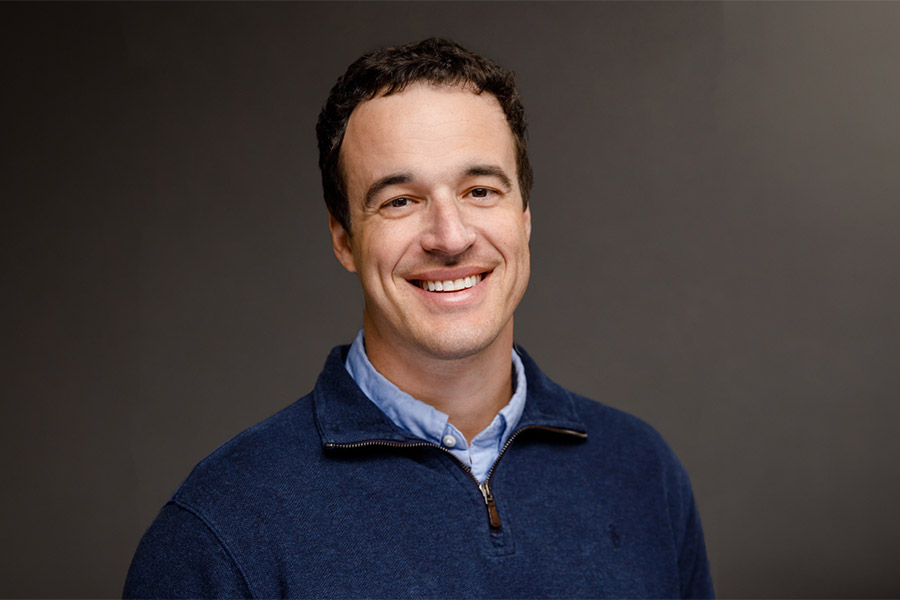Baylor Anthropologist Receives Prestigious Early Career Award from Human Biology Association
Samuel S. Urlacher, Ph.D., has received the 2024 Michael A. Little Early Career Award for his contributions to the field of human evolutionary biology

Contact: Shelby Cefaratti-Bertin, Baylor University Media & Public Relations, 254-327-8012
Follow us on Twitter: @BaylorUMedia
WACO, Texas (March 21, 2024) – The Human Biology Association has honored Samuel S. Urlacher, Ph.D., assistant professor and graduate program director for the Department of Anthropology at Baylor University, with its premier early career award in the field – the 2024 Michael A. Little Early Career Award – for Urlacher’s work and research as a human evolutionary biologist.
The Michael A. Little Early Career Award, established in 2013, recognizes a member of the Human Biology Association in the early years of their career for a significant contribution to the field of human biology and the promise of future significant contributions.
“I'm incredibly honored to receive this award,” Urlacher said. “The Human Biology Association is my intellectual home and is full of bright and talented members. For the HBA to recognize me at this early stage of my career is a special feeling.”
Urlacher’s impactful research focuses on understanding global variation in human biology and health. Much of his work investigates how children utilize calories and how early life experiences and economic development shape lifetime metabolic health outcomes. His research has been published in top journals, including Science, Nature, Proceedings of the National Academy of Sciences (PNAS), Science Advances, Current Biology and the American Journal of Biological Anthropology. In addition, his work has been featured by various media outlets, including The New York Times, ABC, Good Morning America, Healthline, El País, The Chicago Tribune and The Scientist magazine.
“The primary objective of my research is to define the evolved bio-energetic pathways that drive variation in human development, metabolism and health,” Urlacher said. “I am particularly interested in how children globally allocate the calories that are available to them to competing physiological tasks (e.g., growth, immune activity, brain development) and the impact of early adversity and resulting variation in energy expenditure on lifetime metabolic disease risk.”
A Ph.D. graduate of Harvard University in Human Evolutionary Biology, Urlacher joined the Baylor Anthropology faculty following a postdoctoral position at Duke University in 2019. At Baylor, he directs the Human Evolutionary Biology and Health Lab, which conducts integrated lab- and field-based research on several continents, with funding from the National Institutes of Health, the National Science Foundation, the Jacobs Foundation, CIFAR, and others.
The Human Biology Association is a nonprofit scientific organization dedicated to supporting and disseminating research and teaching on human biological variation in evolutionary, social, historical and environmental contexts through interdisciplinary science including internationally recognized leaders in the fields of anthropology, anatomy, public health, endocrinology, genetics, nutrition and numerous other fields
ABOUT BAYLOR UNIVERSITY
Baylor University is a private Christian University and a nationally ranked Research 1 institution. The University provides a vibrant campus community for more than 20,000 students by blending interdisciplinary research with an international reputation for educational excellence and a faculty commitment to teaching and scholarship. Chartered in 1845 by the Republic of Texas through the efforts of Baptist pioneers, Baylor is the oldest continually operating University in Texas. Located in Waco, Baylor welcomes students from all 50 states and more than 100 countries to study a broad range of degrees among its 12 nationally recognized academic divisions.
ABOUT THE COLLEGE OF ARTS & SCIENCES AT BAYLOR UNIVERSITY
The College of Arts & Sciences is Baylor University’s largest academic division, consisting of 25 academic departments in the sciences, humanities, fine arts and social sciences, as well as 11 academic centers and institutes. The more than 5,000 courses taught in the College span topics from art and theatre to religion, philosophy, sociology and the natural sciences. The College’s undergraduate Unified Core Curriculum, which routinely receives top grades in national assessments, emphasizes a liberal education characterized by critical thinking, communication, civic engagement and Christian commitment. Arts & Sciences faculty conduct research around the world, and research on the undergraduate and graduate level is prevalent throughout all disciplines. Visit the College of Arts & Sciences website.